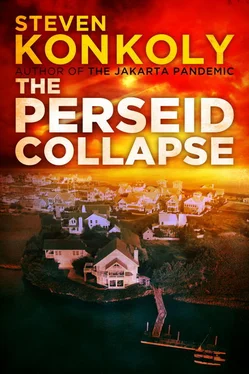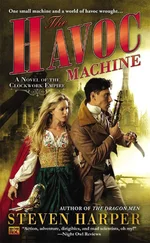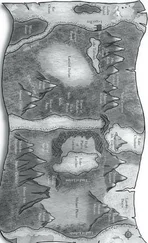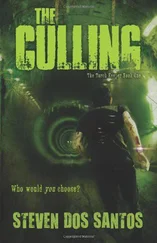“That would be a first,” added Linda Thornton, winking at her husband.
“Always busting my chops,” said Charlie.
“Good call, Charlie,” Alex admitted. “I wanted to avoid routing them toward the Maine Mall, but we might not have a choice. At least the roads should be clear of mud and debris north of the Harrison intersection. Let’s rework the route while we’re here.”
Samantha turned to Alex. “I want to hear more about your plan to get us past this mud.”
“Here’s what I was thinking… we can’t make multiple trips back to the neighborhood with Ed’s Jeep. Once that engine roars to life, everyone in the neighborhood will be watching. If it returns multiple times, we’re going to have a crisis on our hands. It’ll be like the last helicopter out of Saigon.”
Charlie chuckled. “That’s a great image, Alex.”
“Which I don’t want to repeat here,” Alex went on. “So, the bicycle group will leave first and walk their bicycles to the fire station. Mountain bikes or hybrids only for this trip. Will that be a problem for any family? I have an extra mountain bike in my basement.”
Everyone indicated that they could provide enough bikes.
“We’ll have to inspect and lubricate each bike. I’ll leave it to the bike group to put together a repair kit,” said Alex.
Kate nodded. “We’ll take care of it.”
“Once you’ve all arrived at the station,” he said, nodding to Kate, “call us via handheld radio or satphone. We’ll start the Jeep and meet you there to transport the bikes and riders to a dry point along Route 1. You’ll have to deal with this nasty shit for about a quarter of a mile, but that’s it.”
“I can live with that,” said Samantha.
“We should all wear throwaway shoes and socks for this part,” Linda chimed in. “Have your real boots or whatever stuffed away in the backpacks.”
“I couldn’t agree more,” said Alex. “We’ll bring a few towels in the Jeep so everyone can wipe off their feet before the trip. You don’t want to start out with wet feet. Once we get everyone in place along Route 1, we’ll split up and stay in touch. I think we should check in via satphone every two hours.”
Everyone nodded in agreement.
“Do your parents have a satphone, Alex? Can we call them along the way?” asked Samantha.
“They do, but I haven’t been able to contact them with mine. They might not even realize there’s a problem yet. The farm is at least another thirty miles inland.”
“Yeah, but they’ll notice that the power is out and the cars aren’t working. They’ll turn the phone on at some point,” said Charlie.
“I don’t know. The farm is isolated enough to keep neighbors from walking over to say hi. Nearest house is at least a half mile down the road. They’re in their early seventies and don’t typically go anywhere during the week. They might not discover their car problem until they decide to grab lunch or dinner in Limerick.”
“But the power’s out. If they have solar, that should raise some questions,” said Charlie.
“They call me with all of those questions, and not by satphone. I guarantee they won’t figure out it was an EMP until they try to start the cars. Even then they might think the batteries died or something. Don’t be surprised if you deliver the bad news about the EMP when you arrive,” Alex said.
“How long do you think you’ll be gone?” Linda asked.
“I think we’ll try to use the turnpike to reach Kittery, then maybe cross the bridge if it’s serviceable. If not, we’ll head west along the New Hampshire border and cross at the least crowded point. My goal is to reach 125 and take that until Kingston; then we’ll do a combination of 107 and 108 to Haverhill—”
“Haverhill? That’s a lot of people in one place,” Charlie remarked.
“I don’t think we can avoid Haverhill. We need to get over the Merrimack, and I’m not sure about crossing options east of Haverhill. This point,” he said, landing a pencil on Haverhill, “is about ten miles from the coast. Up here that wouldn’t be a problem, but based on the direction of the wave, wind and flash that I saw this morning the asteroid—if it was an asteroid—hit closer to the beach down here.”
“Going west would be way worse in terms of population,” muttered Ed. “You’ve got Lawrence and Lowell here.”
“What about trying to cross at West Newbury?” Kate suggested. “There has to be a way to get there without going through Haverhill. If the bridge is down, you can drive back to Haverhill.”
“Let me check on that,” Alex said.
He pulled a softbound map book of New England from his backpack and feverishly searched for the page with a detailed street map corresponding to the area Kate had pointed out on the larger map. He found the map and confirmed the validity of her idea.
“We have a couple of options to reach West Newbury from 108. If the bridge there is down, we could use East Broadway here,” he said, pointing to a road along the river, “to approach the Bates Bridge on the outskirts of Haverhill. Assuming the road isn’t washed out.”
“You’re welcome,” said Kate, smugly.
“You’re thanked,” replied Alex. “Correct me if I’m wrong here, Charlie, but I think we can work our way from Groveland to Reading without using Route 28.”
“Definitely, but once we hit Reading, we might as well take the 28. It won’t matter what road you’re on at that point. It starts to get crowded.”
“Should we ditch the car before Reading?” asked Alex.
“Ditch the car ?” said nearly everyone at the same time.
“What? We can’t drive Ed’s Jeep into Boston. We wouldn’t last fifteen minutes,” said Alex.
Ed asked him, “How far are we going to walk?”
“I guess it depends on where we stash the car. I was hoping for something between five and eight miles.”
“Reading’s a lot further than that. We’d be useless by the time we reached the Charles,” said Ed.
“We can’t risk taking your jeep into a high-density population area. Too many variables we can’t control without seriously heating up these barrels,” he said, reaching over to his rifle set against the wall, “which would make the situation worse.”
“How can it get worse?” Ed asked.
“Shooting solves your most immediate problem, but the problem usually comes back really quickly. We’ll be slower on foot, but we won’t have a giant bull’s-eye painted on us. More people probably live in Medford and Cambridge combined than the entire greater Portland area—and they all want out of the city. Ed’s Jeep will quickly become the talk of the town, which is likely to put us in an untenable situation.”
“Fuck it. I’m in,” Charlie announced, rising over the table to examine the map. “No need to stop before Reading. We’re talking mostly suburbs. Stoneham’s a little more packed, but it doesn’t get really busy until Medford. See this right here?” Everyone stood up and leaned over the table to see where Charlie was pointing. “Middlesex Fells Reservation. We could easily stash the Jeep somewhere in the forest about a quarter of a mile from the northern edge of Medford. If the trees are still standing.”
“True,” Alex agreed. “We really have no idea how bad it is down there. We’ll bring the Jeep to the edge of Medford and figure out how to hide it. If the forest is a no-go, we might have to sit back and wait until dark to hide the Jeep near the city.”
“Tomorrow night? Now we’re talking about tomorrow night?” Samantha said nervously. “That’s more than twenty-four hours. I think you guys should leave tonight. Take the Jeep straight through to the kids. You’ll be back by tomorrow morning at the latest. I’m worried that you’re overthinking this, Alex. Our kids are waiting. They’re probably wondering why we haven’t shown up yet. The longer we delay this, the worse it’ll get out there.”
Читать дальше












